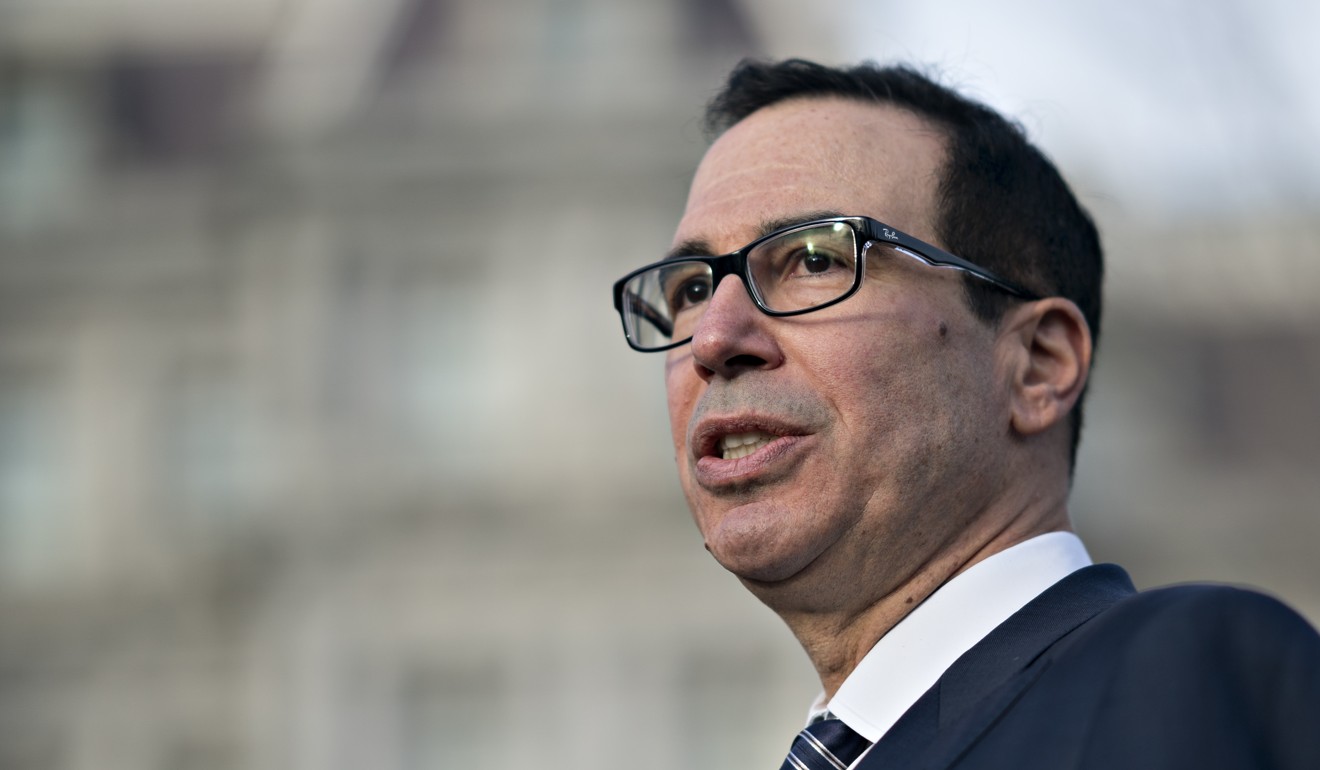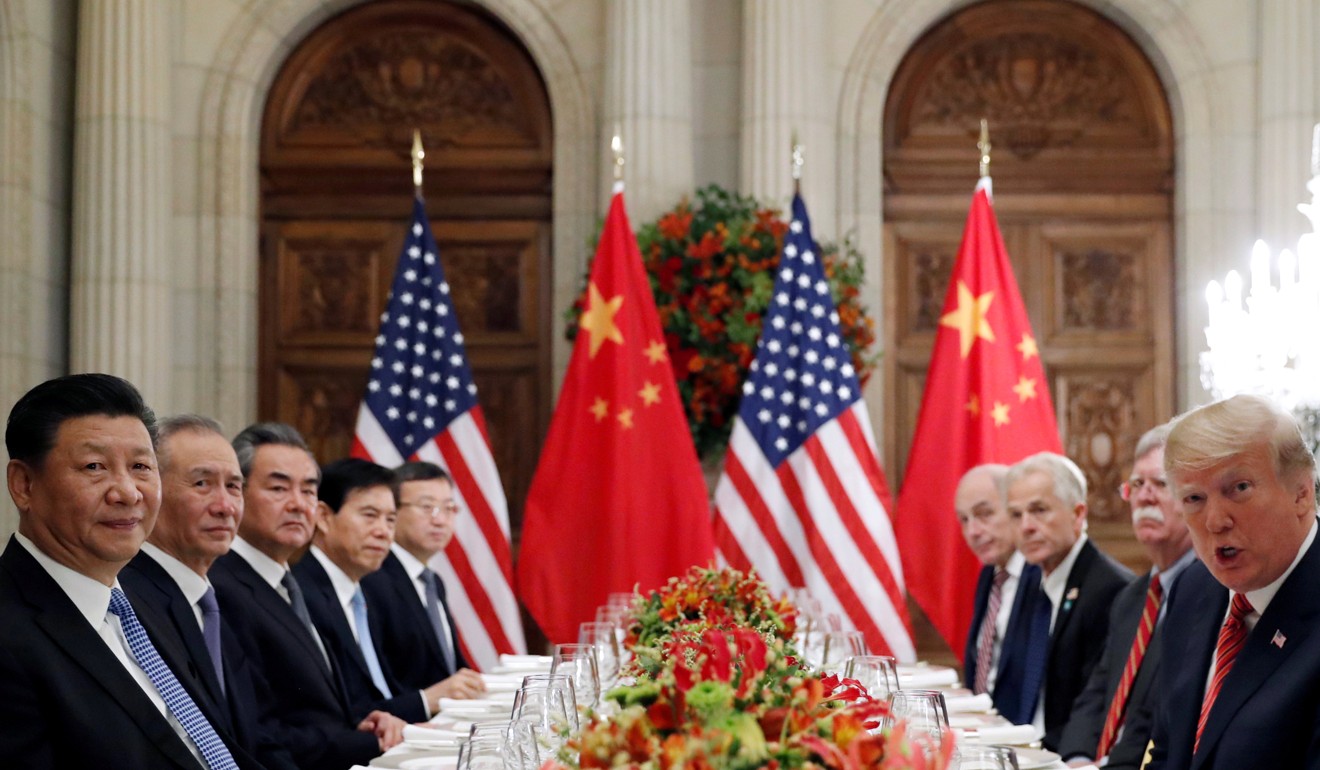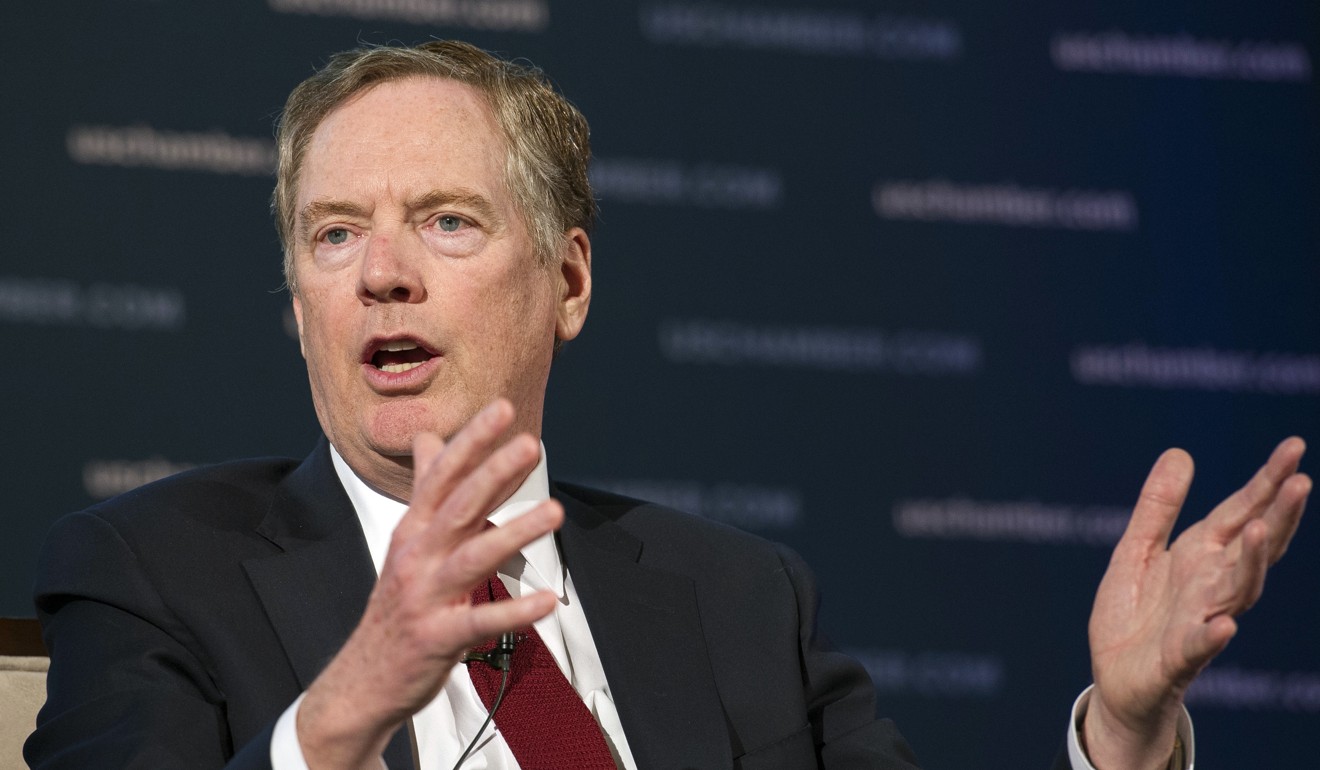
‘Tariff Man’ Donald Trump says China trade war talks will end in March – unless they don’t
- US president hinted in a tweet that negotiations may last longer than expected and may not even deliver the ‘real deal’ he is hoping for
US President Donald Trump on Tuesday held out the possibility of an extension of the 90-day trade truce with China but warned he would revert to tariffs if the two sides could not resolve their differences.
Trump said his team of trade advisers led by China trade hawk US Trade Representative Robert Lighthizer would determine whether a “REAL deal” with China was possible. “If it is, we will get it done,” Trump said in a Twitter post. “But if not remember, I am a Tariff Man.”
The threat of an escalating trade war between the world’s two largest economies has loomed large over financial markets and the global economy for much of the year and investors greeted the ceasefire agreed by Trump and Chinese President Xi Jinping over the weekend with relief.
Markets, however, pulled back sharply after Monday’s rally as doubts crept in over what could realistically get accomplished in the tight negotiating window.
Trump addressed one of the concerns by indicating he would not be opposed to extending the 90-day truce.
“The negotiations with China have already started. Unless extended, they will end 90 days from the date of our wonderful and very warm dinner with President Xi in Argentina,” Trump tweeted.
Earlier on Tuesday, Treasury Secretary Steven Mnuchin also raised the prospect of the deadline extension.
“So again, this will be a real agreement again, and not that we can accomplish everything in 90 days, but we expect to make a lot of progress,” Mnuchin told Fox Business Network.
Trump and Xi said they would hold off on imposing additional tariffs for 90 days starting on December 1 while they sought to resolve their trade disputes that have seen the flow of hundreds of billions of dollars worth of goods disrupted by tariffs.
While Trump hailed the agreement with Xi “an incredible deal”, a lack of detail from the Chinese side has left investors and analysts wondering if Trump’s exuberance is warranted.
“It doesn’t seem like anything was actually agreed to at the dinner and White House officials are contorting themselves into pretzels to reconcile Trump’s tweets (which seem if not completely fabricated then grossly exaggerated) with reality,” J.P. Morgan Chase said in a trading note.

White House economic adviser Larry Kudlow said on Tuesday that a reduction in Chinese tariffs on US cars and agricultural and energy commodities would be a “litmus test” for whether US-China trade talks were on track.
Washington also expects China to promptly address structural issues including intellectual property theft and forced technology transfers, US officials have said.
White House national security adviser John Bolton told The Wall Street Journal’s CEO Council meeting on Tuesday that Chinese theft of US intellectual property was among the administration’s top concerns.
He said the United States should look into a rule that would bar imports of Chinese products that used stolen US intellectual property.
US Representative Steve King, an Iowa Republican, in February 2017 introduced a bill that would have allowed the US government to punish Chinese intellectual property theft by imposing duties on the country’s imports.

The legislation, which had eight Republican cosponsors but was not put to a vote, envisaged using revenue raised by the duties to compensate those harmed by China’s actions.
Trump has long accused China of unfair trade practices that hurt Americans and the US economy.
“When people or countries come in to raid the great wealth of our Nation, I want them to pay for the privilege of doing so. It will always be the best way to max out our economic power,” he said on Tuesday.
His appointment of Lighthizer to lead the talks instead of Mnuchin puts one of the administration’s toughest China critics in charge. Trump said on Tuesday that Lighthizer would work closely with Mnuchin, Kudlow and trade adviser Peter Navarro, who is a notorious China hawk.

Neither the Chinese government nor official state media has made any mention of the 90-day time limit to reaching a consensus on trade, just one of several areas in which both countries’ accounts of the terms agreed during the leaders’ summit have varied.
Trump repeated on Tuesday that China had agreed to “start buying agricultural product[s] and more immediately”, a commitment that was absent from the Chinese Ministry of Foreign Affairs’ statement on Sunday.
Trump also tweeted on Tuesday: “MAKE AMERICA RICH AGAIN.”
He “seems to be convinced that tariffs are actually a tax paid by other countries, not by the American consumer as is in fact the case”, said Jorge Guajardo, a former Mexican ambassador to China.
“However I will give it to him that he has managed to bring China to the table,” said Guajardo, who is now a senior director at Washington-based McLarty Associates focusing on international trade.
Just two days before his meeting with Xi, Trump told reporters that he “[liked] the deal we have right now”, referring to “billions and billions of dollars coming into the United States in the form of tariffs or taxes”.
That was a very different message to the one that emerged immediately after the dinner, when Trump said that he and Xi had agreed on “an incredible deal” and that US-China relations had taken a “big leap forward”.
Trump’s disparate statements about his commitment to brokering a lasting deal with China were the result of him trying to both appease the stock markets and gain leverage in the negotiations with China at the same time, Guajardo said.
“He’s constantly invoking the stock exchange as a referendum on his presidency,” Guajardo said. The slump in the US markets on Tuesday after the president called himself “Tariff Man” was proof, he said, that if “you live by the stock exchange, you die by the stock exchange.”


